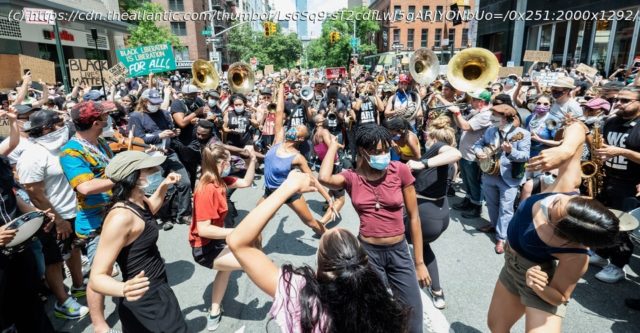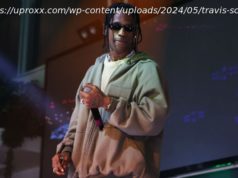Months ago, Johnniqua Charles sang an impromptu song to protest her detainment. Now hip-hop DJs have turned her words into a gleeful rallying cry and warning.
When a security officer named Julius Locklear grabbed Johnniqua Charles earlier this year outside of a South Carolina strip club, the confrontation became a concert. In a video filmed on the scene, Charles repeatedly asks why Locklear is holding her without reason. Then, with a wiggle and a shimmy, she starts singing, “You about to lose yo job, because you’re detaining me for nothing!” At one point, she tells the camera to make sure to “get this dance.” Locklear seems to stifle a laugh even as he maintains a grip on Charles’s arm.
Charles’s impromptu protest happened in January or February, but amid nationwide fury about the over-policing of black people, it has now gone viral. On June 3, the DJs Suede the Remix God and iMarkkeyz looped Charles’s words to a hyped-up trap rhythm. An accompanying music video synced up footage of Beyoncé, the rapper Bobby Shmurda, and the muppet Elmo dancing to the beat—and included mugshots of the four officers charged in connection to the killing of George Floyd. Protesters in multiple cities began using “You about to lose yo job” as a chant, as a sign slogan, and as backing for dance routines worthy of a Super Bowl halftime.
If the Defund the Police movement is to have a defining anthem, it may well be this track, which packs a shocking amount of profundity into what would otherwise seem like internet ephemera. The line “You about to lose yo job!” can be heard as a plea, a warning, and a desperate wish for the reality that today’s protesters seek to create—the reality in which authorities are reliably held accountable. Charles’s defiance proudly flaunts the individuality and humanity that racist systems ignore. Her performance also embodies the fact that survival, rebellion, and music-making have long been twined for black Americans.
Even before Charles’s song began to catch on, the recent demonstrations were, among many other things, spectacles of sound: lockstep stomps, syncopated shouts, the haunting rustle of silent vigils conducted with helicopters overhead.






